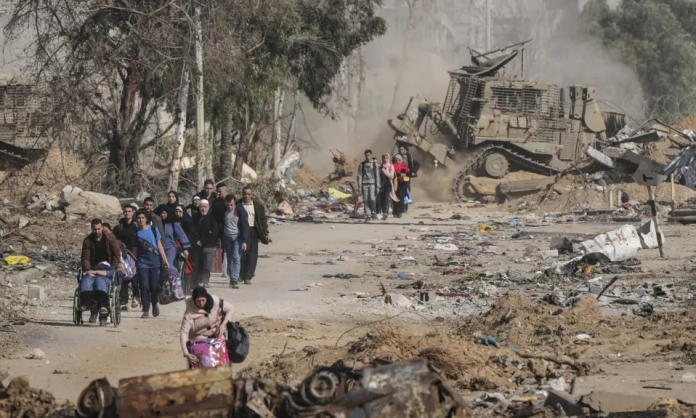NEW YORK, Oct 9 (WAM/APP/DNA):Hanan Balkhy, WHO Regional Director for the Eastern Mediterranean has stressed “the need to move quickly from crisis response to recovery because rebuilding Gaza’s health system will not only save lives today; it will restore dignity, stability, and hope for the future.”
The statements came at the Seventy-second session of the WHO’s Regional Committee for the Eastern Mediterranean (RC72) Presser, in which the international official talked about the dire conditions in the Gaza Strip where she said there is now “at last, a glimmer of hope that its end may be in sight.”
“But when the fighting stops, a new struggle will begin—to rebuild Gaza’s shattered health system and rescue an entire population from the edge of famine and despair.WHO has been planning for the day after the conflict, and we now have a clear vision of where and how to move forward,” she added.
She explained that reconstructing the health sector will be costly. “Over US $7 billion split between humanitarian response and early recovery, and longer-term needs—but this investment is essential for the peace and stability that health can bring.”
“First, we need to get hospitals working again. 14 of 36 hospitals are functioning, but only partially, with dire shortages of electricity, clean water, and medicines, as well as broken equipment and damaged infrastructure. Some facilities have been hit, and rehabilitated, more than once. WHO—which supplies all the fuel that powers hospitals and ambulances—has delivered 17 million litres of fuel, keeping surgeries, neonatal care, and vaccine cold chains running. But far more is needed. Essential supplies—from antibiotics to wound dressings—must reach every part of the Gaza Strip without delay.”
At the same time, she continued, “we must confront hunger and malnutrition. We are already too late when Palestinian health authorities report that 455 people—including 151 children, mostly under five—have died from malnutrition since January. Over half a million people are trapped in famine-like conditions, and more than a million others are severely food insecure. Seven in ten pregnant and breastfeeding women are acutely malnourished, one in five babies is born underweight or premature, and infectious diseases are surging.”
She added that WHO stands ready to support the day-after response and the recovery of Gaza’s health system by “restoring core services, strengthening the health workforce, and rebuilding a resilient, people-centred system of care.”
Next week, she said, health ministers, policymakers, and regional health leaders will gather in Cairo for the 72nd session of the Regional Committee for the Eastern Mediterranean.

















